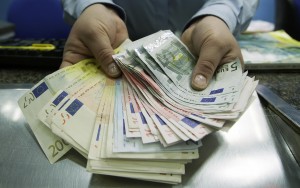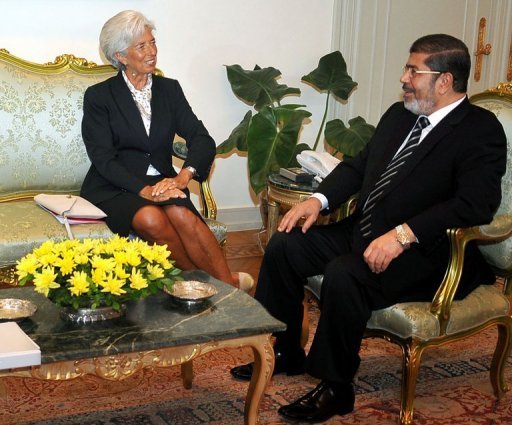
(AFP Photo)
By: Rada Halal
According to statistics released by the Central Bank, gold reserves decreased $185m, dropping from $4bn to $3.86bn in January, while the value of other state assets increased.
Amina Halmi, president of the Egyptian Centre for Economic Studies said that the decrease in the country’s foreign currency reserves could be attributed to the release of tenders by the Central Bank to support the price of the Egyptian pound versus other currencies.
The decrease in reserves, she said, was not a good sign, adding that the bank would soon seek to implement a new system for the buying and selling of foreign currency, and would implement new restrictions to curb further decreases in reserves, which at one point totalled $36bn before the outbreak of the January 25th Revolution.
Hisham Ramez, governor of Egypt’s Central Bank, stated that he expected the rate of decrease in Egypt’s foreign currency reserves to slow down by March, due to lack of short term debt obligations required from Egypt.
Mahmud Sahim, economics analyst at the Cairo Financial Company, said that the slowdown in tourism is the main cause for further decreases in the country’s foreign currency reserves.
Fakhri Al-Faqi, a professor of economics and political science and aide to the previous executive director of the International Monetary Fund, said that further decreases witnessed recently were small and did not pose a significant threat to Egypt’s economy, saying that previous estimates had put Egypt’s reserves after decreases at $12bn.
He said that bank transfers of currency from Egyptian workers living abroad was the primary reason that the country’s reserves had not dropped to lower levels.
He said that during January Egypt had acquired $700m in further debt; however February had not witnessed such numbers. This was partially the result of Central Bank policy which helped set in place new standards for the selling of dollars to importers of essential goods.




